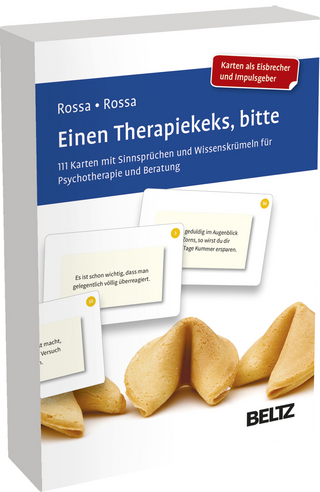
Anxiety Disorders Interview Schedule Adult Version (ADIS-IV): Client Interview Schedules
Oxford University Press Inc
978-0-19-518670-3 (ISBN)
- Titel ist leider vergriffen;
keine Neuauflage - Artikel merken
The Anxiety Disorders Interview Schedule for DSM-IV (ADIS-IV) is a structured interview designed to assess for current episodes of anxiety disorders, and to permit differential diagnosis among the anxiety disorders according to DSM-IV criteria. The ADIS-IV also provides sufficient information to permit functional analysis of the anxiety disorders. In addition, sections to assess current mood, somatoform, and substance use disorders are included because of their
high comorbitidy rate with anxiety disorder and because the presenting symtomatology of these disorders is often quite similar to that of the anxiety disorders. The ADIS-IV also contains screening questions for psychotic and conversion symptoms and familial psychiatric history. A more detailed section
is included to ascertain the patient's medical and psychiatric treatment history. Finally, with the exception of Axis II disorders, the ADIS-IV permits the use of the DSM-IV multiaxial system.
Timothy A Brown received his Psy.D. from the Virginia Consortium for Professional Psychology in 1988. He has published numerous scientific articles and chapters about anxiety disorders. He is Associate Director of the Center for Anxiety and Related Disorders and Research Associate/Professor in the Psychology Department at Boston University. He has been a consultant to the National Institute of Mental Health on the evaluation of psychosocial and pharmacological treatments for anxiety disorders, and he has served as a consultant for large projects focusing on the assessment and diagnosis of anxiety disorders using DSM-IV criteria. In addition, he was a member of the DSM-IV Anxiety Disorders Sub-Workgroup for generalized anxiety disorders and mixed anxiety depression. Recently, his research has focused on the classification, development and evaluation of the outcome of psychosocial treatments for anxiety disorders, and the nature and assessment of panic and generalized anxiety disorder. Peter A. DiNardo received his PhD in Clinical Psychology from Washington University in 1974. He is presently a professor of psychology at the State University of New York, College at Oneonta, and he has been a consultant to the Phobia and Anxiety Disorders Clinic at the Center for Stress and Anxiety Disorders since 1982. His current research interests include diagnostic reliability of DSM-IV anxiety disorders and etiological factors in specific phobias. David H. Barlow received his Ph.D. from the University of Vermont in 1969 and has published over 400 articles and chapters and over 20 books. His major interests over the past 30 years has been the study of anxiety and its disorders, and developing new psychological procedures for practice settings. Prior to his current position as Professor and Director of the Center for Anxiety and Related Disorders and Director of Clinical Psychology Programs at Boston University, he founded clinical psychology internships at Brown University and the University of Mississippi Medical Center. He is the recipient of the 2000 American Psychological Association (APA) Distinguished Scientific Award for the Applications of Psychology. Other awards include the Career Contribution Awards from the Massachusetts and California Psychological Associations, and a MERIT award from the National Institute of Mental Health for long-term contributions to the clinical research effort.
| Erscheint lt. Verlag | 1.1.1994 |
|---|---|
| Reihe/Serie | Treatments That Work |
| Verlagsort | New York |
| Sprache | englisch |
| Maße | 210 x 281 mm |
| Gewicht | 2881 g |
| Themenwelt | Geisteswissenschaften ► Psychologie ► Klinische Psychologie |
| Medizin / Pharmazie ► Medizinische Fachgebiete ► Psychiatrie / Psychotherapie | |
| ISBN-10 | 0-19-518670-2 / 0195186702 |
| ISBN-13 | 978-0-19-518670-3 / 9780195186703 |
| Zustand | Neuware |
| Haben Sie eine Frage zum Produkt? |
aus dem Bereich


